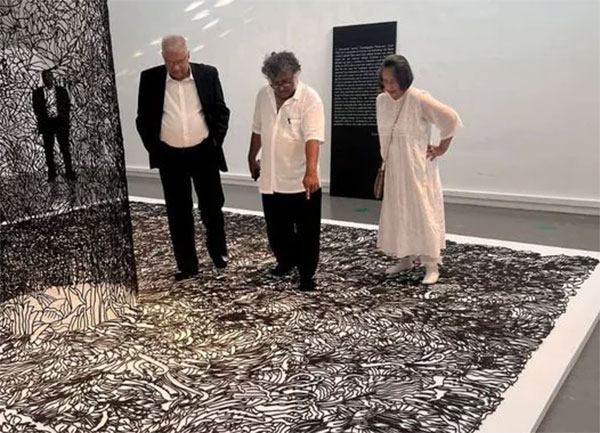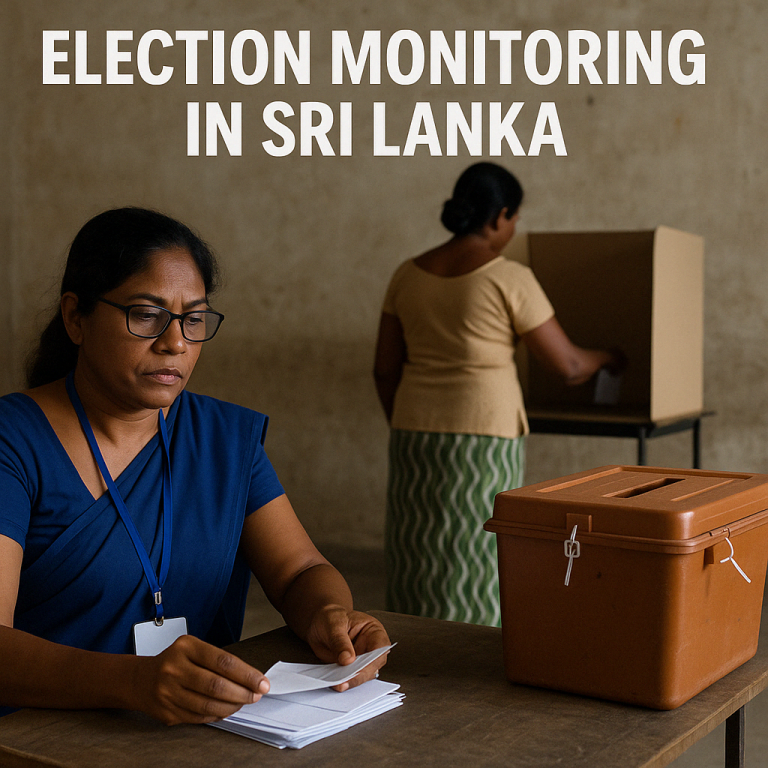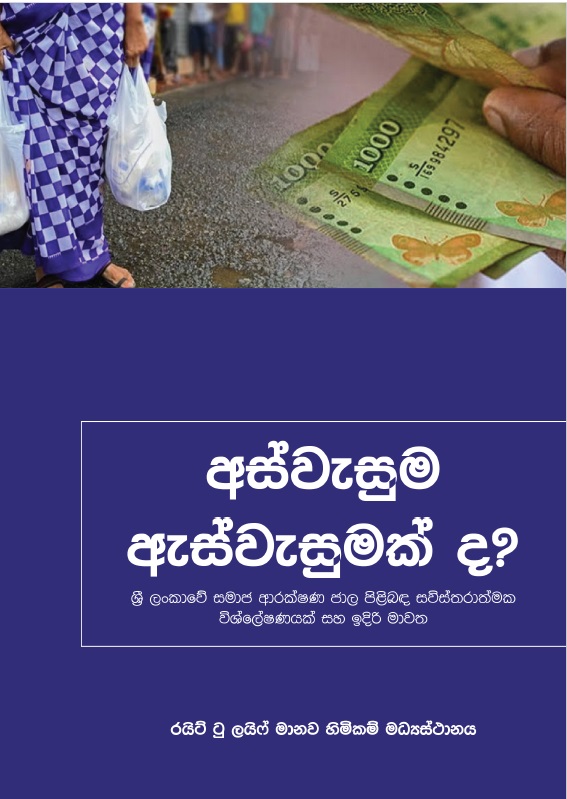– Shamindra Ferdinando
Sole Communist Party (CP) MP Weerasumana Weerasinghe broke ranks with dissident SLPP MPs on January 09 to vote for the Office for National Unity and Reconciliation (ONUR) Bill.
Having contested the last general election on the SLPP ticket, the Matara District MP aligned himself with the Uththara Lanka Sabhagaya (ULS) strongly opposed to the Wickremesinghe-Rajapaksa government. However, the CP had absolutely no qualms in backing the controversial Bill, suspected by many in the South to be a Trojan Horse.
In addition to lawmaker Weerasumana Weerasinghe, Sarath Kumarasiri (Anuradhapura District SLPP) voted for that Bill. In spite of being a member of the SLPP rebel group, that included MP Dullas Alahapperuma, Kumarasiri threw his weight behind the government.
Both MPs told the writer that the pivotal possibility of the ONUR law to facilitate the post-war reconciliation process couldn’t be denied. They stressed the responsibility on the part of Parliament to take whatever measures necessary to achieve reconciliation.
MP Weerasinghe underscored two critically important issues specifically (a) tangible measures to change the education system to ensure understanding among different communities and (b) Jaffna District MP M.A. Sumanthiran’s defeat at the January 21 ITAK (Illankai Thamil Arasu Kadchi) leadership contest. The CP member asserted that President’s Counsel Sumanthiran’s election could have facilitated reconciliation efforts.
But, Jaffna District MP Sivagnanam Shritharan comfortably won the race. The election was conducted in Trincomalee about two weeks after the enactment of the ONUR law.
MP Kumarasiri said that regardless of his affiliation with the rebel group, he wouldn’t hesitate to stand up with the government on issues he felt would be beneficial to the country. The MP said that he was out of the country on the date the vote on the Online Safety Bill was taken up. The SLPPer said that he would have definitely voted for the much disputed law, as well, though his colleagues opposed it.
Commenting on the forthcoming national elections – presidential later this year and parliament in early 2025, as announced by President Ranil Wickremesinghe’s group, MP Kumarasiri said that their alignment with the main Opposition Samagi Jana Balawegaya (SJB) could be finalized within weeks.
Both Weerasinghe and Kumarasiri declared their wholehearted commitment to the ongoing reconciliation process, spearheaded by the incumbent government. Addressing Parliament during the debate on the ONUR Bill, the CP member appreciated the role played by Justice Minister Dr. Wjeyadasa Rajapakse, PC, to streamline the process by strengthening the new ONUR management.
In addition to the two dissident SLPP MPs, Weerasumana Weerasinghe and Sarath Kumarasiri, only one SJB MP Vadivel Suresh (Badulla district) voted with the government parliamentary group. Unfortunately, the vast majority of government members skipped the vote. Therefore, out of the 225 MPs in Parliament, only 48 voted for the Bill, seven voted against, whereas a staggering 169 were absent at the time of the vote.
Among those who voted for the Bill was Sivanesathurai Chandrakanthan alias Pilleyan (SLPP Batticaloa district), a former LTTE cadre and one-time sidekick of their celebrated commander Vinayagamoorthy Muralitharan alias Karuna. Pilleyan is the leader of Tamil Makkal Viduthalai Pulikal (TMVP). Only one other Tamil MP Kulasingham Thileepan (EPDP/Vanni district) backed the Bill.
Why did 176 lawmakers (seven voted against and 169 skipped the vote) felt they shouldn’t support the government initiative? Did they fear catastrophic consequences if they took a stand on ONUR?
The UNP owed an explanation as to why its only MP Wajira Abeywardena (National List) conveniently failed to vote for the crucial Bill.
Among those who skipped the vote were M.A. Sumanthiran and Sivagnanam Shritharan, both vied for ITAK leadership and the latter won.
The following lawmakers voted for the Bill: Premier Dinesh Gunawardena, Susil Premajayantha, Bandula Gunawardena, Wijeyadasa Rajapakse PC, Madura Vithanage, Prasanna Ranatunga, Anuradha Jayaratne, Gunatilleke Rajapaksa, Pramitha Bandara Tennakoon, Rohana Dissanayake, Nalaka Bandara Kottegoda, Geetha Kumarasinghe, Mahinda Amaraweera, Cader Masthan, Kulasingham Thileepan, Sivanesathurai Chandrakanthan alias Pilleyan, A.L.M. Athaulla, D. Weerasinghe, Kapila Nuwan Athukarale, U. K. Sumith Udukumbura, Samanpriya Herath, Sanath Nishantha Perera (his last vote before the fatal accident on the Colombo-Katunayake expressway in the early hours of January 25), Ashoka Priyantha, Chinthaka Amal Mayadunne, S.M. Chandrasena, Jagath Samarawickrema, H. Nandasena, Nimal Siripala de Silva, Thenuka Vidanagamage, Maj. Sudarshana Denipitiya, Vijitha Berugoda, Dr. Gayashan Nawanandana, Kumarasiri Ratnayake, Pavitradevi Wanniarachchi, Janaka Wakkumbura, Muditha Prishanthi, Ranjith Siyambalapitiya, Udayakantha Gunatilleke, Dr. Seetha Arambepola, Jayantha Ketagoda, Sagara Kariyawasam, Yadamini Gunawardena, Manjula Dissanayake, Mohamed Faleel (all members of the government group), Weerasumana Weerasinghe and Sarath Kumarasiri (SLPP dissidents) and Vadivel Suresh (SJB).
Lawmaker Weerasumana Weerasinghe didn’t mince his words when he declared that extremists on both sides always opposed reconciliation efforts. The CP representative stressed that the ONUR should have been properly implemented immediately after the successful conclusion of the war in May 2009. The first time entrant to Parliament found fault with the top management of ONUR that had been established during the Yahapalana administration in terms of the 2015 Geneva Resolution for its failure to achieve desired results.
Dr. Wasantha Bandara issues warning
None of the Sinhala lawmakers critical of ONUR and the planned next step to setting up of an independent Commission for Truth, Unity and Reconciliation conveniently failed to vote against the Bill. Perhaps the most prominent among those who skipped the vote were National Freedom Front (NFF) leader Wimal Weerawansa, Pivithuru Hela Urumaya (PHU) leader Udaya Gammanpila and former Public Security Minister Rear Admiral Sarath Weerasekera. May be they, too, still have a flicker of hope in the latest reconciliation effort, despite having their hopes dashed repeatedly, especially when the West was mollycoddling the LTTE and its ardent backers, while paying lip service to fighting terrorism here.
They, too, however owed the public an explanation regarding their decision to miss the vote. If they really felt that ONUR would pave the way for a fresh disaster, they should have voted against the Bill. Their strategy remains unclear.
The likes of Weerasumana Weerasinghe and Sarath Kumarasiri, are certain to vote for the Bill meant to establish the proposed commission at its final reading.
The Wickremesinghe-Rajapaksa government can quite easily set up the Commission, through an Act of Parliament, as the main Opposition and a section of the SLPP wouldn’t, under any circumstances, vote against the relevant Bill.
Since the SLPP-led Parliament elected UNP leader Ranil Wickremesinghe in the third week of July 2022 as the eighth President to complete the remainder of the term of the people’s elected President Gotabaya Rajapaksa, unceremoniously ousted through violent street protests, the government quite comfortably enacted a spate of new laws.
There cannot be a better example than the pathetic performance of the Opposition at the debate and the vote on the ONUR Bill. Those who made bombastic statements and issued warnings over impending catastrophe in case the Parliament established an independent Commission for Truth, Unity and Reconciliation, conveniently failed to take a stand in Parliament.
However, Dr. Wasantha Bandara, on behalf of nationalist organisations in a spate of statements and articles, has explained the circumstances under which the Yahapalana government establishing the ONUR in 2015. We don’t blame nationalists’ fears here, knowing very well what happened to the legitimate demand of the Palestinians for a two state solution even at this late stage, after they were robbed of much of what they had by the arrogant British and placed them at the mercy of Israel, and, thereafter, being lied to them with the above promise for so long by the West, to appease their own consciences for having ill-treated Jews throughout history. And also knowing especially how Mr. Wickremesinghe signed the secret one sided Ceasefire Agreement with the LTTE after it was prepared by the Norwegians without any inputs from our military.
According to Dr. Bandara, the then Premier Ranil Wickremesinghe took the lead in the setting up of that office. The enactment of ONUR law recently is meant to strengthen the process.
Dr. Bandara has explained how the UNP, at the behest of Western powers and in consultation with the TNA, over the years, pursued an agenda severely inimical to the national interest, finally leading to the finalisation of Geneva Resolution on Oct 01, 2015.
Of the eight new laws required to be in place in terms of the Geneva Resolution, with the passage of the ONUR Bill on January 09, 2024, seven Acts are now in place. The enactment of the proposed Bill on the independent Commission for Truth, Unity and Reconciliation will complete the process as demanded by Geneva.
Dr. Bandara asserted that the UNP leader had succeeded in resurrecting the Geneva process and was proceeding rapidly. The SLPP ended up facilitating the process detrimental to the war-winning country.
The following are the laws that were enacted since 2015: (1) Yahapalana government (2015-2019) presented a Bill to establish the Office on Missing Persons (OMP) in Parliament on June 22, 2016 and the Office on Missing Persons (Establishment, Administration and Discharge of Functions) Act, No. 14 of 2016 (OMP Act) was passed in Parliament on August 11, 2016. The then President Maithripala Sirisena operationalised the OMP on Feb 28, 2018 by appointing seven commissioners, headed by Saliya Pieris P.C.
(2) The Yahapalana government in 2017 incorporated the provisions of the ‘International Convention for the Protection of All Persons from Enforced Disappearances’ into the law of Sri Lanka. Clause 8 of the relevant Bill enabled foreign countries to seek the extradition of a Sri Lankan who is suspected, accused or convicted of having caused enforced disappearances in Sri Lanka. In terms of the law Sri Lanka is obliged to inform foreign governments of the measures it intends taking to prosecute or extradite those persons wanted by them. Clause 21 empowered the executive arm of the State to oversee the full implementation of this international convention in Sri Lanka and according to Clause 23 new law superseded all other written law.
(3) Sri Lanka established an Office for Reparations. The then Speaker Karu Jayasuriya certified ‘Office for Reparations Act, No. 34 of 2018 on Oct 22, 2018.’
(4) Parliament on March 7, 2018 passed an Act No 5 of 2018 to give effect to the International Convention for the Protection of All Persons from Enforced Disappearances.
(5) Sri Lanka passed ‘Mutual Assistance in Criminal Matters (Amendment) Act No 24 of 2018. Speaker Jayasuriya certified it on Aug 15, 2018. The Yahapalana administration amended the Mutual Assistance in Criminal Matters Act No 25 of 2022.
The failed constitutional coup in late Oct 2018, followed by the Easter Sunday carnage in April 2019 and the change of government at the Nov 2019 presidential poll sort of derailed the Geneva project. However, the return of Ranil Wickremesinghe to power in the wake of Gotabaya Rajapaksa’s removal in July 2022 paved the way for the resumption of the Geneva agenda.
(6) After a lapse of several years Sri Lanka in August 2023 enacted ‘Assistance to and Protection of Victims of Crime and Witness Act of 2023.’
(7) In January 2023 Parliament adopted the ‘Office for National Unity and Reconciliation (ONUR) Bill’ thereby bringing the overall process much closer to a successful conclusion from their point of view.
Now only the independent Commission for Truth, Unity and Reconciliation remains to be established.
The UNP, SLFP, UPFA and SLPP have fully cooperated to advance the Geneva agenda and within a matter of months the Commission for Truth, Unity and Reconciliation, too, will be established. However, Tamil political parties and civil society groups haven’t been satisfied with the process. They have said so openly.
Dr. Bandara alleged that Tamil political parties, as well foreign-funded civil society groups, pretended that the enacted laws didn’t meet their aspirations. The passage of the Bill that would deal with the proposed independent Commission for Truth, Unity and Reconciliation would be the eighth law and the final.
Grave lapses on Sri Lanka’s part
In spite of much advertised Sri Lanka’s declaration of withdrawal from the Geneva accord of Oct 01, 2015, the Parliament sustained the project.
The then Prime Minister Mahinda Rajapaksa announced on the afternoon of Feb 19, 2019 that Sri Lanka would withdraw from the process of implementing UN Human Rights Council resolution 30/1, which was co-sponsored by the treacherous UNP-led government. The announcement was made close on the heels of the US declaration of a travel ban on then Army Commander Lt. Gen. Shavendra Silva and his family.
Just a week later, then Foreign Relations Minister Dinesh Gunawardena announced Sri Lanka’s withdrawal from the Geneva process. The declaration was made at the high-level segment of the 43 session of Geneva-based United Nations Human Rights Council (UNHRC). The Mahajana Eksath Peramuna (MEP) leader’s declaration pertained to UNHRC resolution 40/1 and the preceding resolutions 30/1 and 34/1.
Having promised what lawmaker Gunawardena called “homegrown solutions to contemporary challenges,” and declared its intention to work toward the closure of the resolution in conjunction with all members of the UN, Sri Lanka, though slowly has adhered to Geneva dictates. The MEP leader in his capacity as the Premier voted for the ONUR Bill. So did his son, Yadamini, an SLPP National List MP and first time entrant to Parliament. The only other MEP member who entered Parliament on the SLPP ticket, Sisira Jayakody, was not in Parliament at the time of the vote. None of the Rajapaksas, in Parliament, voted against the ONUR Bill.
It would be pertinent to mention that the Yahapalana partners, the UNP and the SLFP never bothered to consult Parliament before Sri Lanka co-sponsored the Geneva Resolution that actually betrayed the war-winning military. The treacherous act took place five years after the Tamil community cleared the military of war crimes allegedly perpetrated during Eelam War IV (Aug 2006-May 2009) by overwhelmingly voting for the warwinning Army Commander then General Sarath Fonseka at the 2010 presidential poll. Fonseka comfortably won all predominantly Tamil speaking districts in the de-merged Northern and Eastern Provinces, but was routed in the South, where the majority lives.
The writer once in the presence of senior Presidential Advisor Lalith Weeratunga and Director General of the President’s Media (PMD) Mohan Samaranayake at a formal meeting at the Presidential Secretariat (Old Parliament) told President Gotabaya Rajapaksa of the need to highlight TNA backing for Fonseka at the 2010 presidential poll and him securing all electorates in the Northern and Eastern Provinces and Tamils dominated major plantation regions. President Rajapaksa’s government never bothered to examine the accountability issue afresh.
The war-winning Mahinda Rajapaksa’s government nor any of the post-war administrations made a genuine effort to counter the false propaganda meant to drag Sri Lanka before the proposed hybrid war crimes court as recommended by Geneva. Sri Lanka could have easily built its defence on the basis of wartime US Defence Attache Lt. Colonel Lawrence Smith’s disclosure at the first Defence Seminar held in 2011 in Colombo that Sri Lanka did not commit any atrocities during the final phase of fighting and those made by wartime British defence Advisor Lt. Colonel Anthony Gash in his secret cables to London in Oct 2017. Those revelations alone could have been used to counter the American led allegations against the country about the closing stages of the war.
But Sri Lanka conveniently ‘missed’ both opportunities while Parliament advanced the Geneva agenda. The bottom line is that Sri Lanka allowed the Geneva operation to continue with the executive, legislature and judiciary extending their fullest support. But still, the same process could have been used cleverly to set the record straight beginning with the Indian terrorism project that ruined Sri Lanka.
What we would like to ask from our estranged Tamil brothers and sisters is whether they realise that by continuing to insist on a pound of flesh they will only help all of us to become a vassal state of India that we have already become more or less with the current leadership that is only interested in their personal survival? Instead as we have said before let us think nationally out of the box and perhaps settle among ourselves for a solution more akin to what we had under the Donoughmore constitution, where all share the pie at the centre instead of perennially fighting over petty issues at the periphery and exacerbating them in the process.
(Cover Photo: Sri Lankan President Ranil Wickramasinghe watching an installation art by anti-war artist and academic Prof. Chandragupta Thenuwara)







